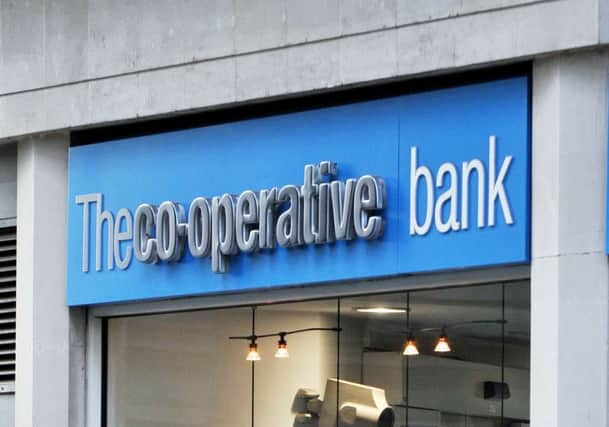Co-op Bank warns of continued losses amid rate cuts
This article contains affiliate links. We may earn a small commission on items purchased through this article, but that does not affect our editorial judgement.


Outgoing boss Niall Booker said lenders were facing “challenging” times following the UK’s vote to leave the European Union, with the Bank of England’s move to slash interest rates making it harder to drive revenues.
The group posted narrowed half-year pre-tax losses of £177 million, down from £204.2m a year earlier, but much of the improvement was down to one-off boosts, including a £58.1m windfall from the sale of its share in Visa Europe.
Advertisement
Hide AdAdvertisement
Hide AdCo-op Bank said it would continue to post losses throughout this year and next as cost cutting fails to offset spending on online banking projects and its overhaul. It added that the impact of the Brexit vote would likely mean a weaker-than-expected return to profit, although it stuck by aims to see “sustainable” earnings in its core bank by late 2017.
The core bank posted underlying earnings of £17.1m in the first six months of 2016, against losses of £26.2m a year ago.
Booker said: “Today’s market conditions are challenging for all retail-focused banks and the macroeconomic uncertainty following the result of the EU referendum, including the likelihood of lower for longer interest rates, may restrict our ability to grow revenue in the short term.”
He added: “We have always been clear that turning the bank around would be a significant journey of at least five years and so far the overall story remains one of progress and improvement.”
Co-op – which nearly collapsed in 2013 after a £1.5 billion black hole was discovered in its balance sheet – said its mortgage business could be hit in the wake of the EU referendum if it slows borrowing. But the group’s half-year results showed progress in attracting and retaining more borrowers, with net customer loans rising to £15.4bn in the first half, from £14.7bn at the end of 2015.
It suffered a 1.5 per cent fall in prime current accounts, although it saw an increase in net switching to the group for the first time in two years.
The group confirmed that Booker will be succeeded on 1 January by recently-appointed deputy chief executive Liam Coleman. The lender is also replacing finance chief John Baines in September, while it announced the board appointment of Alistair Asher, general counsel of the wider Co-op Group and an architect of its 2013 rescue.
Co-op Bank had to be rescued by bondholders including US hedge funds in a move that saw the wider Co-op group’s ownership of the bank reduced to a 20 per cent stake.
Advertisement
Hide AdAdvertisement
Hide AdBooker said the group had not ruled out the possibility of a stock market listing, although he stressed it was not “on the agenda any time soon”.
The bank put by another £33.5m for the payment protection insurance (PPI) scandal after the City watchdog recently proposed a later-than-expected deadline for claims. It also confirmed that cost-cutting efforts under its turnaround had seen jobs axed and 54 branches shut in the first half, with another five due by the end of the year.
Since Booker joined the lender in 2013, the firm has sold off risky assets and slashed branches in a bid to get the business back in shape. It failed a Bank of England stress test in December 2014 – a key measure of capital strength that assesses the ability of major UK lenders to withstand another financial crisis.
Today’s results revealed it still does not have enough of a capital buffer to “withstand a severe stress scenario”.
